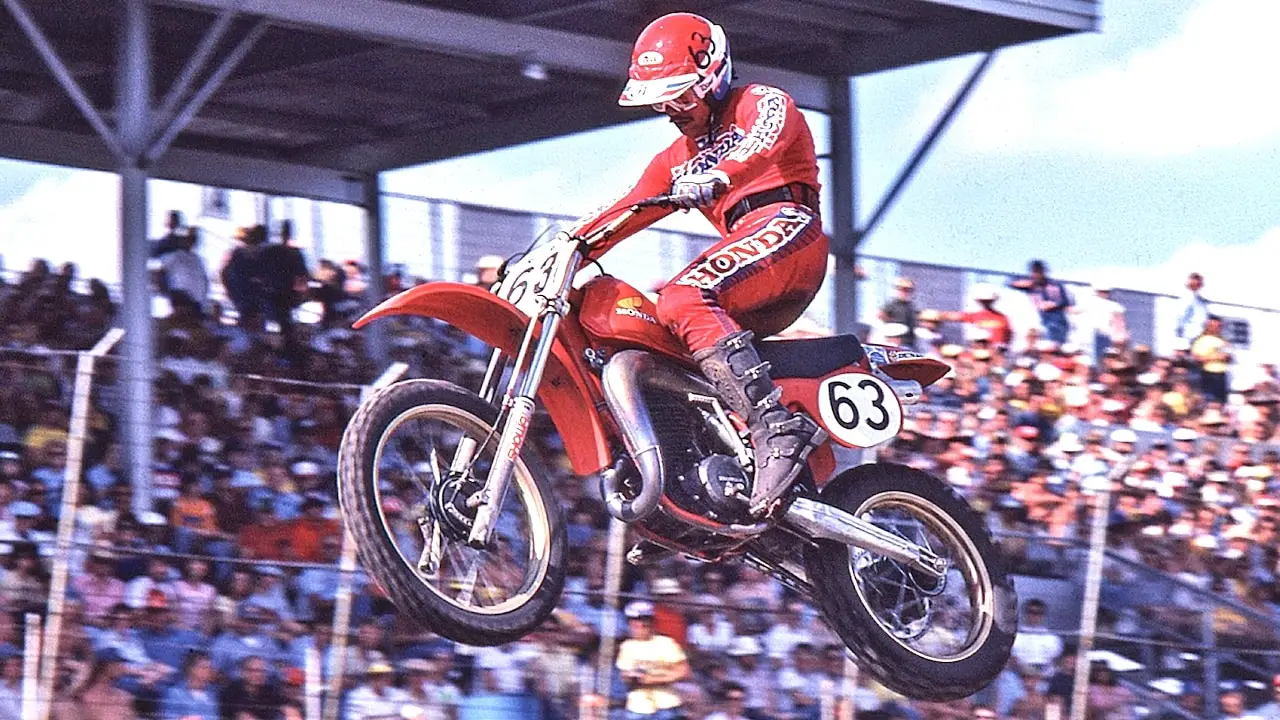PROTECT YOUR DNA WITH QUANTUM TECHNOLOGY
Orgo-Life the new way to the future Advertising by AdpathwayAustin Forkner has described Triumph's newcomer status in the SMX World Championship as both a blessing and a curse amid his adaptation to the TF 250-X in Pro Motocross. Forkner wrestled with an unpredictable rear end at the opening West Coast rounds and is now chasing comfort as he works his way up the 250MX ladder.
"It's just the shock–I had a little more kick in the rear than I wanted on some of those fast, square-edged bumps,” Forkner explained. "We tried a few things this week. The team thought it was coming from the front forks–that the bike was getting too low in the front, which made the rear end kick. Now we have a direction to try either on race day or during the week. This is the tricky part of being with a new manufacturer like Triumph; we don't have years of data to lean on."
Triumph has competed in just 15 rounds of Pro Motocross–a figure that pales in comparison to rivals like Honda or Yamaha. While those Japanese manufacturers can draw on decades of information to solve the problems that their riders face, Triumph lacks that luxury. "It's not like they can go back and look, so the hard part is figuring out what the issue is," Forkner continued. "If I struggle with the forks then it could come from the forks, chassis, linkage, motor mounts, the length of the bike or whatever.
"You would think that it is the rear end so it is the shock, but it is not the case a lot of the time. It's not as simple as the problem area also being the solution." Even in the Pro Motocross events Triumph has entered, most of their data has come from just one rider–limiting the depth and range of what they have been able to analyze. The current roster of four stars will naturally produce more extreme scenarios on opposite ends of the spectrum, which should ultimately accelerate development from one week to the next. The naivety–if that's not too harsh a word–can come with striking benefits for athletes like Forkner, too.
 Michael Antonovich
Michael Antonovich
Tales of teams being restricted by data–and reluctant to experiment with some new concepts–are as old as time. Situations like those have driven divorces around the paddock–think Eli Tomac and Kawasaki—so there can be a subtle beauty in Triumph's scenario, especially with a staff capable of troubleshooting. "It's the freedom that's good," Forkner echoed. "I spoke to Scuba before I left for Thunder Valley and he showed me the linkage graph, like the progressiveness of our linkage throughout the shock stroke, and we can create a new part from that."
"Some of the teams have so much data, like you said, so they do not want to try ideas or make something new," he continued. "Triumph have all of the nicest machines at the facility–they are open to that. If we are not happy with what we have, let's make a new part! That is what we are going to try to work on next week a little bit." The ambition is to find more stability on fast downhills, which is what his previous steed is famed for. 11-19 scores at the third round pointed to some slight progress.
The opportunity to mold the TF 250-X without restriction is a significant benefit to Forkner as he attempts to rebuild his career through a fresh start. The gradual progression that defined his supercross term provides fresh hope for Pro Motocross, where he will hope to emulate the transformation from top 20 straggler to top 10 mainstay.



















 English (US) ·
English (US) ·  French (CA) ·
French (CA) ·